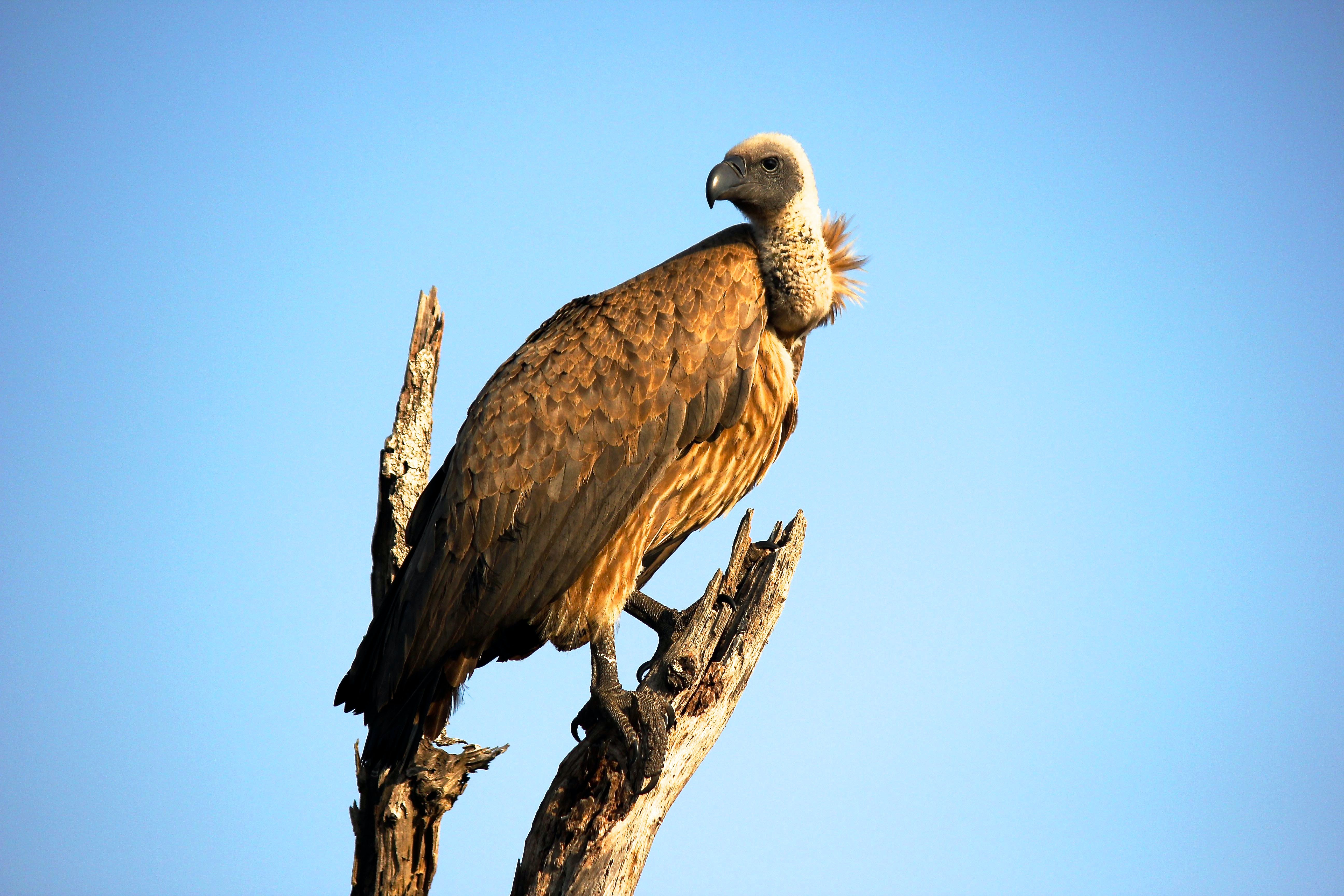10 Fun Facts about Vultures |

|
|
Photo by: Karen Alchin |
|
Vultures may not be everyone's favorite bird, but they're fascinating creatures with some surprising traits. Here are ten fun facts that might change your perspective on these feathered scavengers. Also, we discuss animals on each episode of the We are the Goobs podcast! Check out our latest episodes now. 1. Nature's Clean-Up CrewVultures play a crucial role in our ecosystem by cleaning up carcasses. Their scavenging habits help prevent the spread of diseases and keep the environment clean. 2. Vultures' Incredible Sense of SmellVultures have an amazing sense of smell that allows them to detect the scent of decaying flesh from great distances. This keen sense helps them locate their next meal with precision. 3. Impressive Wingspans of VulturesWith wingspans reaching up to 10 feet, vultures are skilled gliders that effortlessly ride thermal air currents. Their large wings enable them to cover vast distances in search of food. 4. Vultures' Unusual Defense MechanismWhen threatened, vultures have a unique defense tactic: they regurgitate their stomach contents! While it may seem gross, this behavior often deters predators and keeps the vultures safe. 5. Vultures' Group BehaviorContrary to popular belief, vultures are social birds that often gather in large groups, called wakes or committees, to feed on carcasses. This communal dining behavior helps them efficiently locate and consume food. 6. Age Ain't Nothing but a NumberVultures can live surprisingly long lives, with some species reaching up to 30 years in the wild. Their ability to adapt to various environments contributes to their longevity. 7. Vultures' Role in Ecosystem BalanceVultures are considered keystone species due to their vital role in maintaining ecosystem balance. By scavenging carcasses, they help regulate populations of scavenger species and prevent the spread of diseases. 8. Varied DietWhile vultures are best known for scavenging carrion, they also consume a variety of other foods, including fruits, insects, and small animals. This diverse diet allows them to adapt to different environments and food sources. 9. Altitude Capabilities of VulturesVultures are skilled aerial navigators capable of soaring at impressive altitudes. Some species have been observed flying at heights exceeding 20,000 feet, utilizing thermal air currents to maintain their flight. 10. Vultures' Worldwide DistributionVultures can be found on almost every continent, inhabiting a wide range of habitats, from deserts to forests. Their adaptability and scavenging abilities have enabled them to thrive in diverse environments worldwide. You Can Never Learn Too Much About VulturesWe could stop at 10 fun facts, but there is so much more to learn! Check out a few more facts about these scavenging birds.
Looking for More Animal Fun FactsThe fun facts don't stop with vultures. We have many more! Check out other animals we have posted about.
Fun Facts About Vultures FAQsDo vultures attack living animals?No, vultures are scavengers and primarily feed on carcasses. They are not equipped to hunt live prey. Are vultures endangered?Yes, many vulture species are facing threats such as habitat loss, poisoning, and hunting, leading to declining populations in some regions. Do vultures have predators?While vultures are apex scavengers, they can fall prey to larger predators such as eagles or large carnivores in some circumstances. Why do vultures circle in the sky?Vultures circle in the sky to gain altitude and search for food. This behavior allows them to cover large areas efficiently. Can vultures smell from far away?Absolutely! Vultures have an exceptional sense of smell, which helps them locate carrion from great distances. Do vultures migrate?Some vulture species migrate seasonally in search of food and favorable breeding grounds. Are vultures harmful to humans?No, vultures are crucial in maintaining ecosystem health by scavenging carcasses. They are not harmful to humans and are, in fact, beneficial to the environment. |